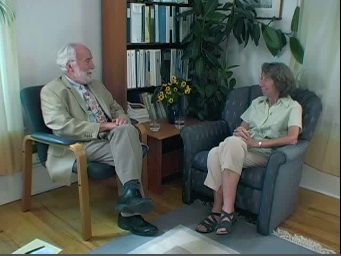 Empowering Students, Teachers, Non-teaching Staff and Parents in a ‘Troubled High School’ through Strategies of CP Multidimensional Interventions
Empowering Students, Teachers, Non-teaching Staff and Parents in a ‘Troubled High School’ through Strategies of CP Multidimensional Interventionsby Donata Francescato, Minou Mebane, Maura Benedetti, Rosa Veronica, Andrea Solimeno, & Manuela Tomai (University of Rome La Sapienza)
In this paper, we outline some of the main principles underlying the intervention strategies that have been used in a project aimed at empowering students, staff, teachers and parents. This project reduced dropout, truancy, failure and bullying rates in a very disadvantaged Italian region. (Peer Reviewed)
Read more... A Rewarding Community Psychology Practice in State Government
A Rewarding Community Psychology Practice in State Governmentby Maria B.J. Chun, Ph.D., CHC (University of Hawaii at Manoa)
Finding employment as a community psychologist outside of academia or “in practice,” has remained an elusive goal for many community psychology graduates. In chronological order, I present my employment history, a description of the position, and how my community psychology training was utilized in the position. It is my hope that this article will provide potential employment ideas and options for recent community psychology graduates and those looking for a career change. (Peer Reviewed)
Read more... Community Psychology and Social Change: A Story from the field of Mental Health in Portugal
Community Psychology and Social Change: A Story from the field of Mental Health in Portugalby José H. Ornelas, Maria Vargas-Moniz & Teresa Duarte (Instituto Superior de Psicologia Aplicada, Lisboa – Portugal)
We present a community-based intervention, based on the principles and values of Community Psychology, a program implemented during the last twenty years in the field of mental health that contributed to changes in the mental health system in Portugal. A community-based support system has been organized to provide social supports in terms of housing, education and employment by enhancing the use of natural contexts, such as schools and businesses, and the diverse social resources available to the general public. (Peer Reviewed)
Read more... Connect to Protect® Researcher-Community Partnerships: Assessing Change in Successful Collaboration Factors over Time
Connect to Protect® Researcher-Community Partnerships: Assessing Change in Successful Collaboration Factors over Timeby Mauri A. Ziff, Nancy Willard, Gary W. Harper, Audrey K. Bangi, Jason Johnson, Jonathan M. Ellen and the Adolescent Medicine Trials Network for HIV/AIDS Interventions (ATN)
In this paper, we focus on these researcher-community partnerships and assess change in collaboration factors over the first year. Respondents completed the Wilder Collaboration Factors Inventory at five time points, approximately once every two to three months. Results across all fifteen coalitions show significant and positive shifts in ratings of process/structure (p<.05). This suggests that during the first year they worked together, Connect to Protect researcher-community partners strengthened their group infrastructures and operating procedures. The findings shed light on how collaboration factors evolve during coalition formation and highlight the need for future research to examine change throughout subsequent coalition phases. (Peer Reviewed)
Read more...by Emily A. Grant B.A. (Wichita State University)
In this interview, Balbir Mathur describes how Trees for Life came to be, the philosophies behind his work, and ideas on how to mobilize a community for global change.

Interview with international peace builder Paula Green on her work on reconciliation and peace building in post conflict situations.
Watch the videoby Tom Wolff Ph.D.
Sustainability of programs especially those supported by time-limited funding is a common dilemma. This paper gives a context for a broad understanding of sustainability, describes a sustainability planning process and a four-pronged approach to sustainability that goes beyond finding replacement dollars to include a focus on policy change, institutionalization of programs, and community buy in. Worksheets and tools are provided for these processes.
by Michael Jacoby Brown
Review by Bill Berkowitz.
For those involved with community practice, a key issue that often arises is doing organizational work in one's community. This doesn’t necessarily mean being a “Community Organizer,” (capital-C, capital-O), or being a “community activist,” with all the connotations that carries; but it does mean bringing people together around an issue or cause to achieve a desired goal.
Read more...It is with great excitement that we bring to you this first issue of the Global Journal of Community Psychology Practice (GJCPP).
This vision and mission driving this journal is to provide high quality, practical information on community practice. We will be publishing authoritative, peer reviewed articles and tools of strategic importance to a broad base of professionals engaged in the practice of developing, implementing and evaluating community interventions. We are committed to engaging and expanding the practice community by offering a new opportunity for collaborative development among community practitioners of a variety of backgrounds and professional affiliations. The GJCPP seeks to deepen the social impact of community practitioners by contributing to their knowledge, skills, and attitudes surrounding community practice. To that end, the Journal contains sections with videos, book reviews and interviews with practitioners, in addition to peer reviewed articles and tools.